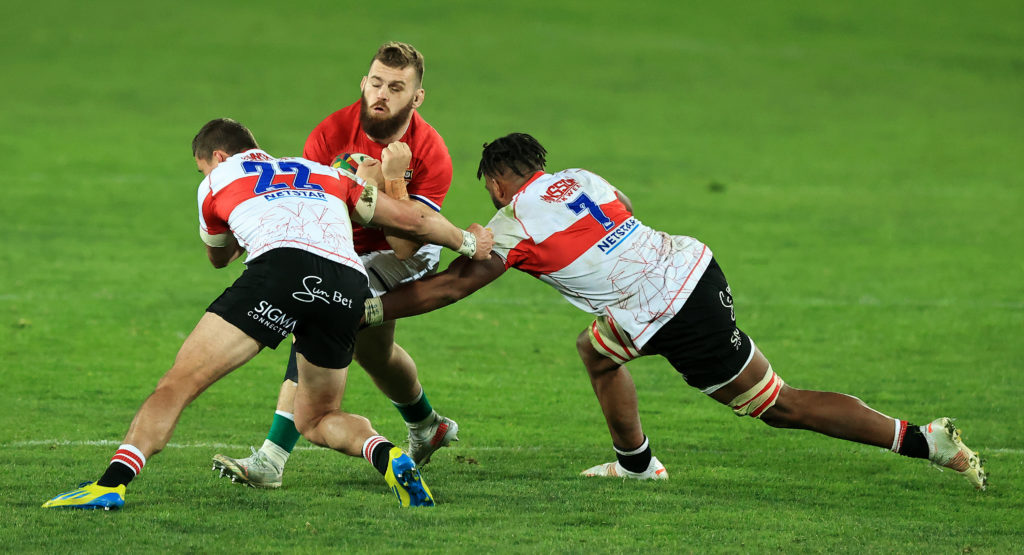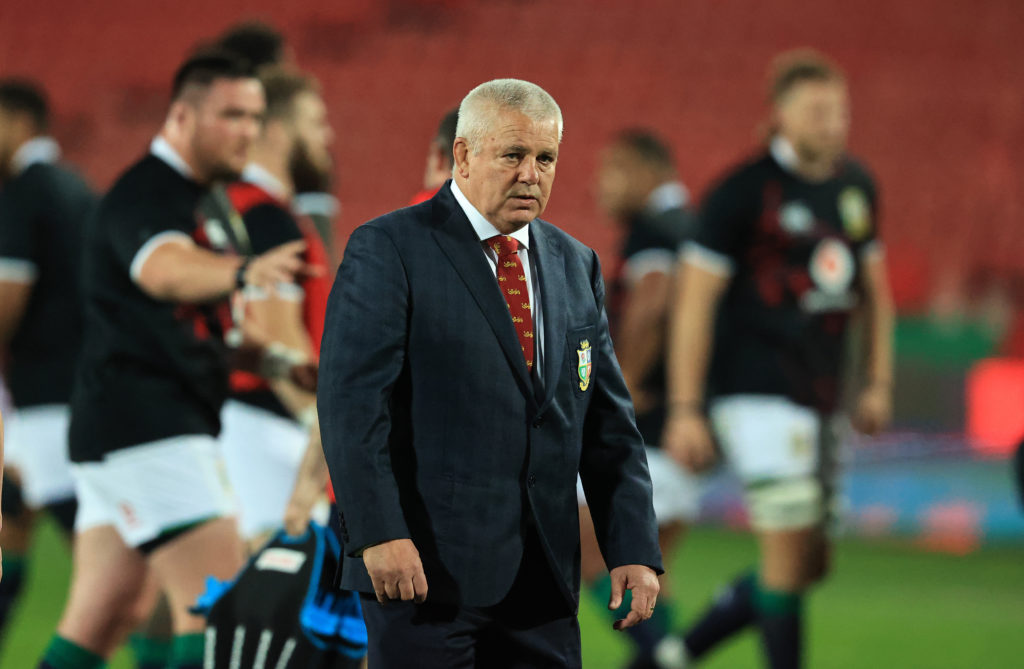Medical qualifications are all the rage these days. If you don’t have them, off to Twitter with you. Even if you do, it is incumbent upon you to wade into social media with just as much gusto to challenge the heathen views of all those who wouldn’t know one end of a ribonucleic acid from the other.
Even John McEnroe has been taken to task for daring to suggest Emma Raducanu might have found herself in a stressful situation recently. To which, among the deafening chorus of the self-righteous, one medico piped up with the weariest cliché of these virus-addled times: “I didn’t know [insert name of latest charlatan] was medically qualified.”
To which the obvious retort is: “I didn’t know [insert name of latest angry medic] had played in the last 16 of a tennis major at the age of 18.”
Rugby, of course, is in the middle (or, actually, probably at the very start) of the mother of all medical crises. The latest lightning rod for those who haven’t got a clue what they’re talking about is Luke Cowan-Dickie. Only, when it comes to the workings of the brain, those who haven’t got a clue what they’re talking about accounts for pretty much everyone, including the most medically qualified. That’s the problem.
When confronted with something scary we don’t understand, it is hard-wired into the human to look to those who, at least, have some sort of medical qualification. Repeatedly we are told in rugby that people more qualified than us have “followed the protocols”. If they say a player is fine, that player must be.
If there is a credible neurologist out there who believes a return to play within 28 days of a loss of consciousness is a sensible policy, let alone within seven, he or she is at odds with the vast majority of neurologists who have spoken or written on this subject.
Michael Aylwin
This is where we, the unqualified, get to ask to see a few medical qualifications ourselves. There are many experts in their fields among rugby’s medical personnel, but it is difficult to think of any who are neurologists.
Warren Gatland talked reassuringly of a “world-renowned specialist in concussion” clearing Cowan-Dickie. It is unlikely the identity of this specialist will ever be made public, understandably so in this era of the Professor Chris Witty-style pile-on. But if there is a credible neurologist out there who believes a return to play within 28 days of a loss of consciousness is a sensible policy, let alone within seven, he or she is at odds with the vast majority of neurologists who have spoken or written on this subject.
Deferring to experts in a field works only so far as those experts agree with each other. When it comes to our anatomy, no body part is more unknowable than that mass of gelatine wobbling around in our respective crania. Gatland hardly needs to be medically qualified himself to make the point that people react to brain injury differently – and no one knows why.
But no one knows, either, what is going on at a molecular level after each and every brain injury, minor examples of which are constant in a game of rugby. All we think we know is that if someone loses consciousness, a kind of safety mechanism has been triggered to sound the alarm that their brain is really not happy.

Hence the caution urged by so many in neuroscience. But how that talks to one’s risk of neurodegenerative conditions in the future, or even just of post-concussion syndrome in the mid-term, not even the finest minds in neuroscience profess to understand.
Now introduce into the narrative someone such as Cowan-Dickie, who is granted the opportunity of a career to play for the Lions and steps off a 12-hour flight (another big no-no after a brain injury, according to neurology) in what may well be the best of spirits and shape. He feels fine. He is desperate to play. This is a short tour and he may well never get another chance. Unlike Alun Wyn Jones, for example, he is physically able to play.
The response of neuroscience – and a host of medically unqualified folk, who are nevertheless repeating what neuroscience has made quite clear – is that such players must be protected from themselves and made to sit it out, no matter how fine they feel. And especially if they are not quite fine but so desperate to play they keep that secret to themselves.
Only Cowan-Dickie knows which of those two categories he falls into, but the protocols must change because not even he knows how much risk he may be taking on. Alas, the protocols, much derided though they are by the most qualified in neuroscience, have not changed. It is difficult to see how they will do, either, without World Rugby admitting those protocols are not fit for purpose, which would be a problem with a lawsuit on.
If a player is not feeling right in a league game against Gloucester, he comes off; if it’s a World Cup quarter-final, he plays on. And he insists he’s fine for the semi.
Michael Aylwin
When a young man, demanding to play and seemingly fine, comes face to face with a shadowy threat that cannot be proved, even by the most qualified, this is the fudge that is arrived at. Lions tours are particularly susceptible. If Cowan-Dickie’s next game after a loss of consciousness had been a regular-season trip to London Irish, it is highly unlikely he would have played.
But this is a Lions tour. If he sits out for 28 days, that is his once-in-a-lifetime opportunity over, to all intents and purposes. No one can expect him to be honest about his symptoms when confronted with that prospect.
High-stakes events are all the more susceptible to this dilemma. World Rugby made much recently of the World Cup’s significantly lower concussion incidence than other elite competitions (12.2 per 1,000 player-hours at the last one vs 20.4 in the 2018-19 Premiership). Disingenuously, they attributed this to their best practice.
In reality, the World Cup plays to different rhythms. Each team has had a longer period of preparation for a shorter event. The wide spread of playing standards reduces the attrition rates during the pool phases. But also there will be significant levels of under-reporting.

Again, as with the Lions, the event is short, high-stakes and one in which few players get to play. If a player is not feeling right in a league game against Gloucester, he comes off; if it’s a World Cup quarter-final, he plays on. And he insists he’s fine for the semi.
Who is to deny him if he can jump through all the hoops presented? Eventually – and possibly quite soon – science will deny him, as the technology for detection of brain injury improves. But that will open a whole can of worms if we discover that brain injury of some form or another is a constant presence in elite rugby.
For now, a clear loss of consciousness is the simplest and most unanswerable indicator of brain injury available to us. People do respond differently to them, but the most qualified in neuroscience seem broadly in agreement that no one should be back on a rugby field within seven days of one.
If there are experts in rugby who disagree with that, ask to see their medical qualifications. The chances are they will not be in neurology.
More stories from Michael Aylwin
If you’ve enjoyed this article, please share it with friends or on social media. We rely solely on new subscribers to fund high-quality journalism and appreciate you sharing this so we can continue to grow, produce more quality content and support our writers.


Comments
Join free and tell us what you really think!
Sign up for free